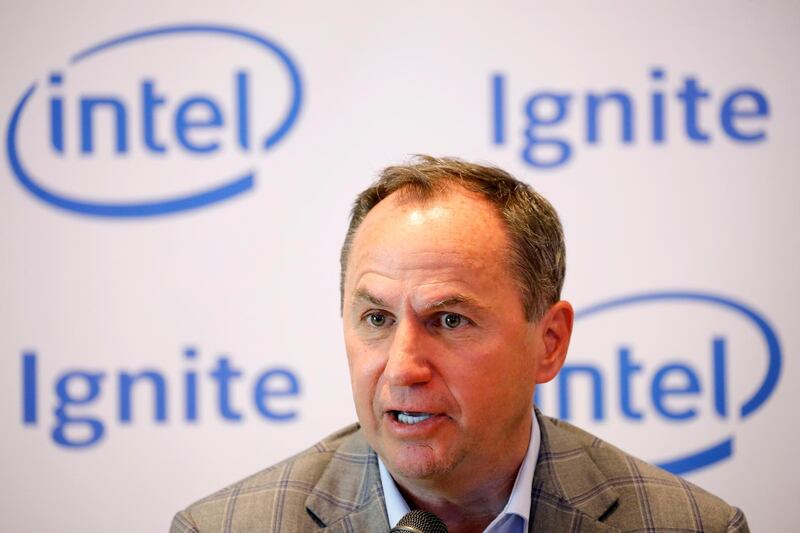Intel is considering moving part of its global supply chain away from China amid the country’s trade war with the US, chief executive Bob Swan said on Sunday.
Intel doesn’t believe tariffs are an “effective way to drive global trade,” Mr Swan said, and is encouraging the governments to engage in constructive dialogue – even as Intel tries to mitigate the impact of the dispute. Asked if those efforts could entail revamping the company’s supply chain, Mr Swan said “absolutely,” without elaborating.
“How do we move goods – sometimes our customers will move their operations – and how do we work the global supply chain so less product is coming directly from China to the US that would be subject to tariffs?” Mr Swan said.
Behind the trade war is President Donald Trump’s position that China and other trading partners are taking advantage of the US. For more than a year he has ratcheted up taxes on imports and encouraged US companies to move production back home.
Uncertainty, as US-China trade negotiations enter a crucial stage, is weighing on companies like Intel, as are signals from the Chinese government that it might not implement major stimulus measures – as it has done in the past – if the economy struggles. Intel already cut its revenue forecast for the full year, citing “China headwinds".
Apple has a backup plan if the trade war with China keeps escalating: say goodbye to Beijing. Taiwan-based Foxconn Technology Group, Apple’s primary manufacturing partner, said it has enough capacity to make all iPhones bound for America outside of China.
Alphabet’s Google is reportedly moving some production of Nest thermostats and server hardware out of China, avoiding US tariffs and an increasingly hostile government in Beijing. It has already reportedly shifted much of its production of US-bound motherboards to Taiwan, according to people familiar with the matter.
The migration is taking place as both foreign and domestic companies seek to pivot production away from China amid Mr Trump’s efforts to reset the parameters for global trade and manufacturing. Beijing is also showing growing signs of clamping down on American corporations, from Ford Motor Company to FedEx, within the world’s largest consumer market and production base.







